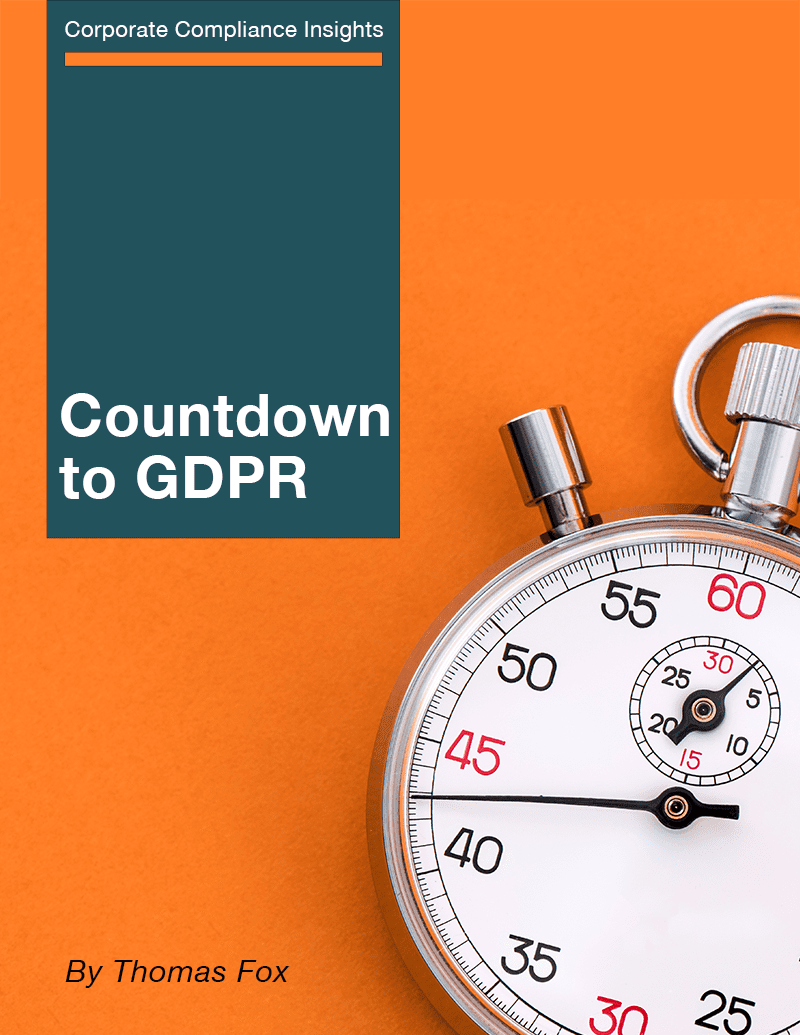Broker-Dealers Navigate New Logistics
On the heels of the DOL Fiduciary Rule’s defeat by the Fifth Circuit Court, the SEC proposed its own series of rule-makings and interpretations intended to address investor confusion about the duties owed to them by their financial professionals. As regulators debate the proposal, Cordium’s Darren Mooney breaks down what it entails, and what firms should be watching for.
On the heels of the DOL Fiduciary Rule’s defeat by the Fifth Circuit Court, the SEC proposed its own series of rulemakings and interpretations this week intended to address investor confusion about the duties owed to them by their financial professionals. While the Commissioners voiced their disagreement with several aspects of the proposal in its current form, they generally supported the effort and voted 4-1 in favor of opening up the 1,000-page package for a 90-day public comment period.
The proposal contains two rules and an interpretation:
- Regulation Best Interest
Broker-dealers would be held to a new “best interest” standard when recommending securities products. They would need to fulfill 3 obligations to meet this standard: 1) Disclose key facts about the client relationship; 2) Exercise care through reasonable diligence to understand whether the recommended securities product or transaction is in the customer’s best interest; and 3) maintain policies and procedures to eliminate, or disclose and mitigate, material conflicts of interest arising from financial incentives.
- Form CRS – Relationship Summary and Restriction on Use of “Advisor”
Investment advisers, broker-dealers and their associated persons would be required to provide retail investors with a short-form relationship summary, limited to 4 pages, that highlights key differences in the types of services offered and describes the legal standard(s) of conduct which apply to their relationship. The rule would also prevent certain broker-dealers and their associated persons from using the terms “advisor” or “adviser” in their name or titles to avoid misleading customers into believing a professional is associated with a registered investment adviser.
- Interpretation of Investment Adviser’s Fiduciary Duty
The proposal will also reaffirm the long-standing federal case law supporting the notion that under the Investment Advisers Act of 1940, registered investment advisers owe a fiduciary duty to their clients.
What to Watch For
What will the DOL do now? The SEC’s proposal comes just weeks before the DOL must decide whether to appeal the court decision and revive its proposed Fiduciary Rule. It has been reported that the SEC and DOL worked closely since the initial proposal of the Fiduciary Rule, so perhaps the DOL will elect not to appeal and instead support the further development of the SEC’s proposal.
Does the package of rules go far enough? Commissioner Kara Stein was the most critical of the proposal’s absent definition of “best interest” and the public will not find the word “fiduciary” in Regulation Best Interest. The proposal appears to be purposely drafted to not disrupt the business models of broker-dealers. But experts will wage the debate over whether a new, undefined standard, fulfilled largely through additional disclosure, actually adds clarity or confuses retail investors into believing their broker-dealer must always act in the investor’s best interest. Other Commissioners expressed hope that research groups would offer comment on the actual impact of the proposed additional disclosure on the retail investor – will it be read and understood, or will this only create a safe-harbor dressed in legalese? Similarly, will broker-dealers find other ways to appear as financial advisers or counselors while avoiding the prohibited words in names and titles?
Timeline? Once published in the Federal Register, the public will have 90 days to offer comments for consideration by the SEC. Given the length of the proposal, the SEC may extend the comment period. Market participants should expect an extended period of uncertainty.
Will it have the votes? Although Commissioner Stein was the only “no” vote, other Commissioners expressed reluctance over their “yes” vote with the hope that issues would be further addressed during the public comment period and in a revised proposal. Getting 3 “yes” votes on the final proposal may also prove to be difficult as two of the existing Commissioners may not be there: Commissioner Stein’s term expired in 2017 and Commissioner Michael Piwowar’s ends this year.



 Darren Mooney, Vice President at Compliance Consulting based in the firm’s San Francisco office. In this role he supports the regulatory needs of investment advisers located on the West Coast. Darren works with hedge fund, private equity, venture capital, real estate, quantitative and other wealth managers to successfully implement and maintain comprehensive compliance programs.
Prior to joining Cordium, Darren was Deputy Chief Compliance Officer and Associate Counsel at F-Squared Investments. He joined at the commencement of an SEC exam and directly supported the compliance program during the investigation and subsequent enforcement regarding historical advertising practices.
Darren received a JD from Suffolk University Law School and a BS from the University of Delaware. He is a member of the Massachusetts bar.
LinkedIn:
Darren Mooney, Vice President at Compliance Consulting based in the firm’s San Francisco office. In this role he supports the regulatory needs of investment advisers located on the West Coast. Darren works with hedge fund, private equity, venture capital, real estate, quantitative and other wealth managers to successfully implement and maintain comprehensive compliance programs.
Prior to joining Cordium, Darren was Deputy Chief Compliance Officer and Associate Counsel at F-Squared Investments. He joined at the commencement of an SEC exam and directly supported the compliance program during the investigation and subsequent enforcement regarding historical advertising practices.
Darren received a JD from Suffolk University Law School and a BS from the University of Delaware. He is a member of the Massachusetts bar.
LinkedIn: 









